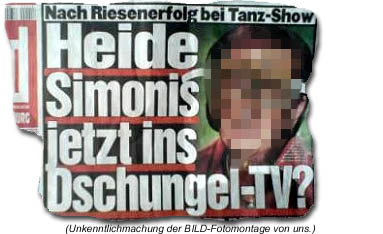Latin America
Related: About this forumEcuador: End Assault on Free Speech
The Communications Law that the Ecuadorian National Assembly approved on June 14, 2013, seriously undermines free speech, Human Rights Watch said today. The law includes overly broad language that will limit the free expression of journalists and media outlets.
The government had proposed a Communications Law in 2009 but it faced opposition in the National Assembly. The new National Assembly that formed in May with a majority of members from President Rafael Correa's political party approved a modified version of the original bill.
“This law is yet another effort by President Correa to go after the independent media,” said José Miguel Vivanco, Americas director at Human Rights Watch. “The provisions for censorship and criminal prosecutions of journalists are clear attempts to silence criticism.”
http://www.hrw.org/news/2013/06/14/ecuador-end-assault-free-speech
reorg
(3,317 posts)The article is yet another effort to slander progressive democracies in Latin America. There are no "provisions of censorship" in Ecuador's new media law, contrary to what this asshat Vivanco asserts.
Disinformation is what HRW in Latin America is all about.
Let's take this claim, for example:
"The law, which applies to both broadcast and print media, includes the following problematic provisions: It prohibits so called “media lynching” which is defined as “the dissemination of concerted and reiterative information, either directly or by third parties, through media outlets, with the purpose of undermining the prestige” of a person or legal entity or “reducing [their] credibility.” The provision would allow the authorities to order the media outlet to issue a public apology and states that they are also subject to criminal and civil sanctions, imposed by the courts."
So, what exactly does Mr Vivanco think is "problematic" about this provision? He doesn't say!
As I mentioned in another thread, in Germany you have the "right to reply". This means, anybody who is targetted for whatever reason in the media has the right to counter any claim made about them. It doesn't matter if the claims are true or not. The natural or legal persons also have the right to see their counterclaims published in the same venue, in the same place. If a tabloid suggests something about you in big letters on their title page, you have the right to demand that they publish your response in the same way. Famous example:
Claim:

Counterclaim

According to the new media law in Ecuador, if someone is targetted, they can respond (which is granted by another provision in the new law). The paragraph about "media lynching" extends this for cases when someone is targetted repeatedly. In this case you can complain with the "Superintendencia de la Información" and they will order an apology, in the same place as the smear campaign was published. That's it.
HRW mentions with respect to this provision that "International bodies from the Inter-American, European, and United Nations human rights systems have long criticized the use of criminal charges to respond to media allegations made against public officials".
Okay, be that as it may (although I believe libel is a punishable offense pretty much everywhere - as it should be), but the new media law doesn't introduce any criminal sanctions. It simply states that the new institution, the "Superintendencia de la Información", may take its decision (to order an apology) without prejudice to whether or not criminal charges are brought or damages claimed.
So, with regard to "the use of criminal charges", nothing changed! But HRW blames the new media law? Ridiculous.
1. La disculpa pública de la o las personas que produjeron y difundieron tal Información.
2. Publicar la disculpa establecida en el numeral anterior en el medio o medios de comunicación, en días distintos, en el mismo espacio, programas, secciones, tantas veces como fue publicada la Información lesiva al prestigio o la credibilidad de las personas afectadas.
Estas medidas administrativas se aplicarán sin perjuicio de que los autores de la infracción respondan por la comisión de delitos y/o por los daños causados y por su reparación integral.
http://is.gd/1B2qRK
treestar
(82,383 posts)What trouble Julian could end up in